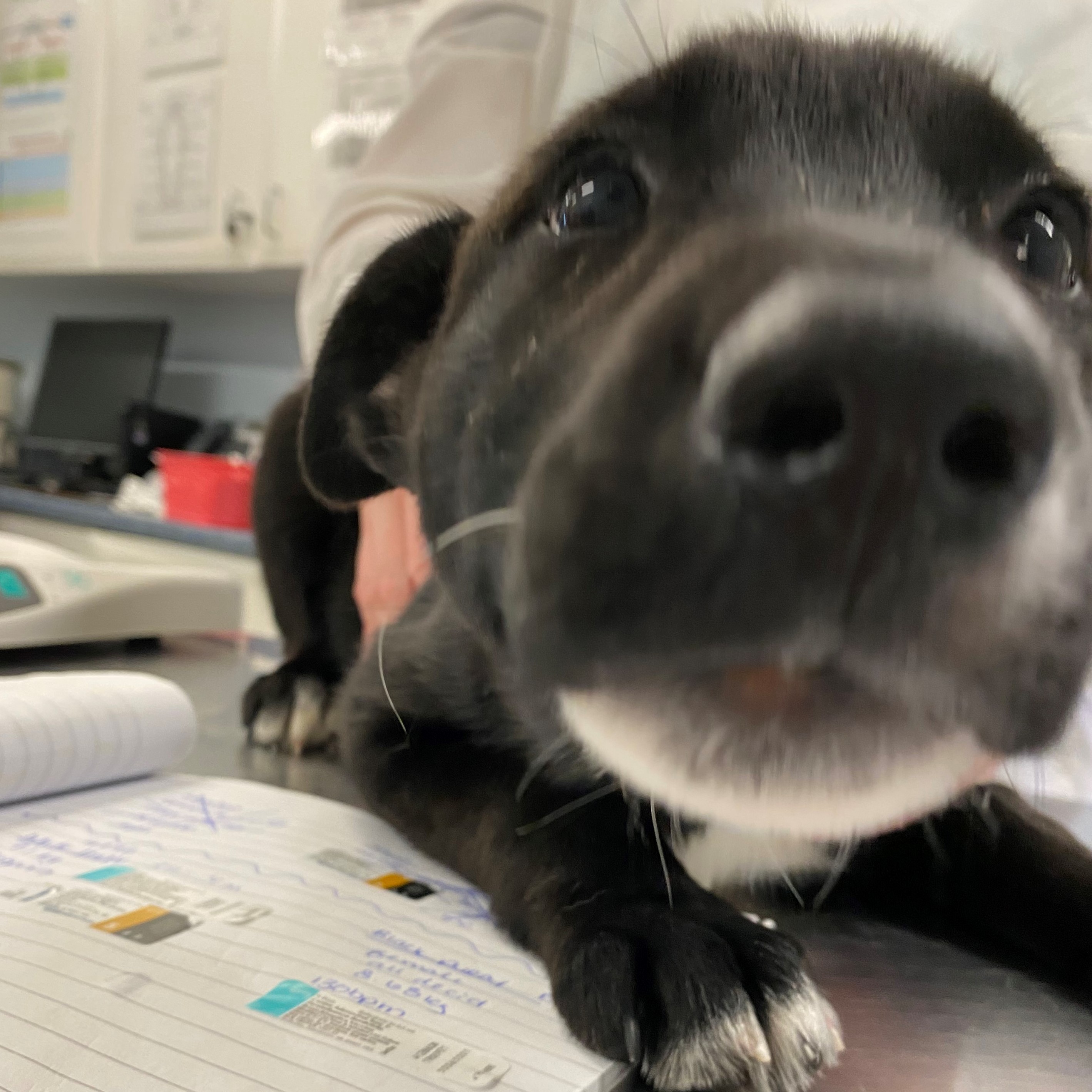When you're on call for an animal welfare organization, answering the phone can be frightening. More often than not, the voice on the other end is literally posing a life-or-death question.
"This is Dr. Brown at the afterhours clinic. A member of the public just arrived with a 10-week-old lab mix puppy that's having seizures. We've given the little guy some phenobarbital but so far, it's not having any effect. Are you willing to continue the care?"
The next words out of my mouth could determine whether this little Labrador cross lives or dies.
I wish it was as easy as, "Sure, we'll take the dog. Do whatever you can."
That would make it so much easier. Unfortunately, "do whatever you can," could put us in a financial deficit. Veterinary diagnostics, treatment and surgeries come at a steep price in the private sector. Don't misunderstand me; we would not save as many animals as we do without our veterinary partners but it's incumbent upon us to manage our expenses and sometimes, that means saying "no" to clinic surrenders. At the very least we have to consider associated costs before accepting the surrender and approving a treatment plan.
When people ask me about the most difficult part of working at the Humane Society, my response is always the same; making decisions about which animals we can save and which animals we can't. I suspect that every responsible animal welfare administrator would have a similar answer. Afterall, no one would take such a stressful and demanding role unless your goal was to save, treat, rehabilitate and rehome every animal. And yet, you know you'll never save them all. You just have to accept that perfection is unattainable. So, you weigh all the factors and make an informed decision. You seek out the best veterinary advice, you scrutinize your shelter's resources, you check your bank balance again and again. You do rudimentary accounting using ballpark figures and clinical estimates and you make a choice.
In the case of the little Labrador puppy, I asked the veterinarian for a treatment plan.
"Can you hold on a minute?"
It might have taken a minute. It might have taken longer, but it felt like a lifetime because in a very real way, it was.
"Mr. Hunter? I have the treatment plan. It's $1800. That includes blood tests, meds and care."
Now it's my turn to pause for a minute.
"What's the prognosis?"
"Guarded. We've eliminated the obvious causes. With a puppy, it could be so many things."
Another pause.
"Okay doctor please go ahead with the treatment plan and let me know how he's doing."
When I disconnect the call, my mind is spinning. We're over budget for off-site care by more than 50%. If these calls keep happening, I don't know how we can continue. 230 animals at a capacity of 144 animals is not sustainable. To be honest, I don't know how we've managed it for the last 18 months. Sooner or later, something has to give.
The vibration of another call startles me. This time it's the shelter. They've received a call from a man with a serious family emergency. He has to leave town for an undetermined amount of time and he can't take his dog. He wants to surrender it. He's tried family, friends, neighbours. Nobody's willing to take over the care.
Once again, I have to weigh the factors and either take on the care of an animal that nobody seems to want, or decline and leave the dog to a questionable or even fatal outcome.
"Is the dog healthy?"
"Yes, according to the owner."
"Aggressive or dangerous?"
"No. The owner says he's a sweetheart."
One more pause.
"Okay, let's do the intake but if it turns out the dog is a danger to staff, you will have to turn him away."
I hang up and minutes later, the vibration of yet another call makes me jump.
"Mr. Hunter, it's Dr. Brown again. The puppy is still seizing. The drugs and treatment are not helping. I think euthanasia is probably the most humane option."
I never had a chance to meet this puppy and now, I never will. His trauma-shortened life was ended by the most compassionate method we have in our limited repertoire. Every single time this happens, it feels like failure.
The morning sun has quietly slipped into the afternoon sky. I have a bunch of errands to run but I don't feel much like doing anything. I call the shelter and ask about the surrendered dog.
"He's beautiful and very friendly. His owner was in tears but he was very thankful that we could take the dog."
I know that feeling; the tears at least.
"Can we find him a home," I ask?
"Oh yeah, he won't be here long."
Small victories. They're what you cling to when you're on call for the Kingston Humane Society and answering the next call is as terrifying as answering the first call.


